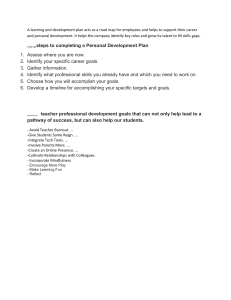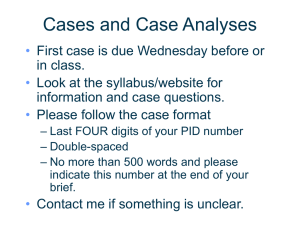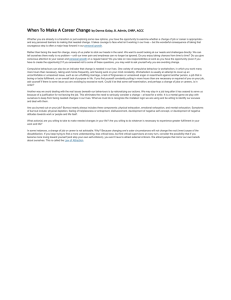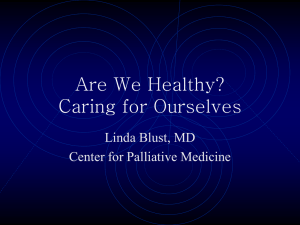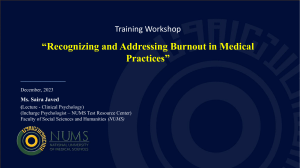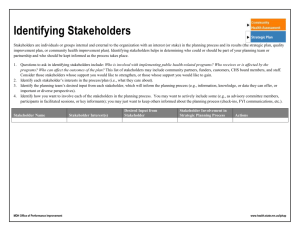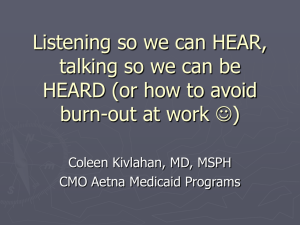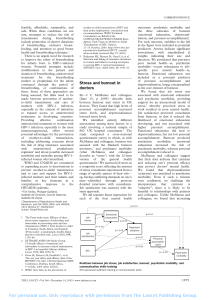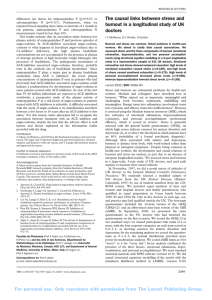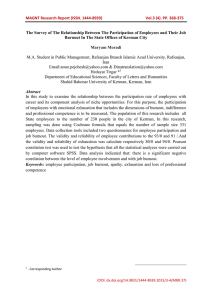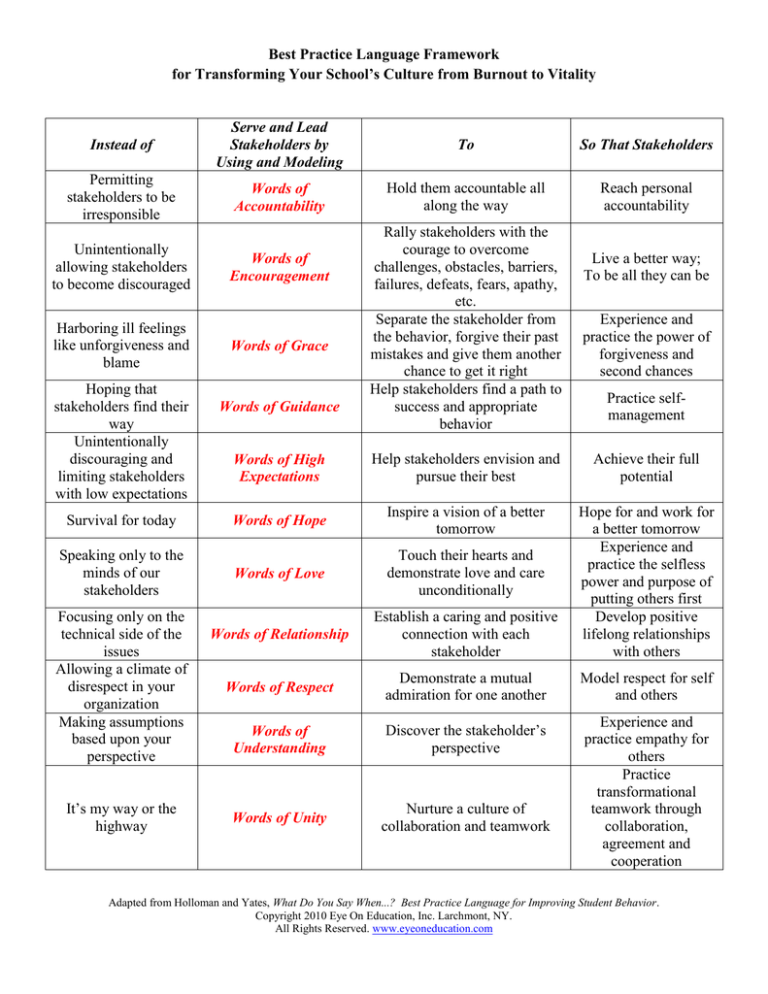
Best Practice Language Framework
for Transforming Your School’s Culture from Burnout to Vitality
Instead of
Serve and Lead
Stakeholders by
Using and Modeling
To
So That Stakeholders
Permitting
stakeholders to be
irresponsible
Words of
Accountability
Hold them accountable all
along the way
Reach personal
accountability
Unintentionally
allowing stakeholders
to become discouraged
Harboring ill feelings
like unforgiveness and
blame
Hoping that
stakeholders find their
way
Unintentionally
discouraging and
limiting stakeholders
with low expectations
Survival for today
Speaking only to the
minds of our
stakeholders
Focusing only on the
technical side of the
issues
Allowing a climate of
disrespect in your
organization
Making assumptions
based upon your
perspective
It’s my way or the
highway
Words of
Encouragement
Words of Grace
Words of Guidance
Rally stakeholders with the
courage to overcome
challenges, obstacles, barriers,
failures, defeats, fears, apathy,
etc.
Separate the stakeholder from
the behavior, forgive their past
mistakes and give them another
chance to get it right
Help stakeholders find a path to
success and appropriate
behavior
Live a better way;
To be all they can be
Experience and
practice the power of
forgiveness and
second chances
Practice selfmanagement
Words of High
Expectations
Help stakeholders envision and
pursue their best
Achieve their full
potential
Words of Hope
Inspire a vision of a better
tomorrow
Words of Love
Touch their hearts and
demonstrate love and care
unconditionally
Words of Relationship
Establish a caring and positive
connection with each
stakeholder
Hope for and work for
a better tomorrow
Experience and
practice the selfless
power and purpose of
putting others first
Develop positive
lifelong relationships
with others
Words of Respect
Demonstrate a mutual
admiration for one another
Model respect for self
and others
Words of
Understanding
Discover the stakeholder’s
perspective
Words of Unity
Nurture a culture of
collaboration and teamwork
Experience and
practice empathy for
others
Practice
transformational
teamwork through
collaboration,
agreement and
cooperation
Adapted from Holloman and Yates, What Do You Say When...? Best Practice Language for Improving Student Behavior.
Copyright 2010 Eye On Education, Inc. Larchmont, NY.
All Rights Reserved. www.eyeoneducation.com
Diagnosing Burnout (Maslach, 1996)
Burnout is the result of:
o
Emotional Exhaustion (EE): the degree of exhaustion that results from the working environment.
o
Depersonalization (DP): the relationship between the giver (educator) and the recipient (student, teacher, parent, etc.) of the
service.
o
Low or No Personal Accomplishment (PA): the perceived feelings of accomplishment and success in the working environment.
Vitality is the result of:
o
Being treated like a PERSON
o
Being ENCOURAGED and EXCITED about your work—and ENJOYING it!
o
Feeling and knowing that you ACCOMPLISHED something today!
Transforming Your School’s Culture starts with OUR Leadership, Service, and Support!
Leading, serving, and supporting others who feel this way:
o
Teacher: “I’m being treated as less than a person, I don’t find joy in my job, and I don’t feel like I’m accomplishing anything!”
o
Parent: “I’m being treated as less than a person, I don’t find joy in parenting, and I don’t feel like I’m accomplishing anything!”
o
Student: “I’m being treated as less than a person, I don’t find joy in my schoolwork, and I don’t feel like I’m accomplishing
anything!”
Lead, Serve and Support with…Respect
“That was very unkind and disrespectful. How could you have handled that differently?"
"When I disagree with you--I'm going to do my best to model for you what it sounds like to respectfully disagree with someone.”
“I appreciate how you waited to speak and gave the other students your attention while they were speaking. That was an act of respect for
others.”
“If you don’t respect yourself—then it’s almost impossible for you to respect others.”
Lead, Serve, and Support with…Unity
"There are no dumb questions! The best way to learn from each other is by asking questions. Your questions can help us all understand
things better."
“In our classroom we want to establish a climate where no one feels embarrassed to say one thing or another. We will work together to
respect each other’s opinions and thoughts.”
“If someone makes a mistake in our classroom it is important to think about how you react to that mistake. In our classroom we will treat
others the way we want be treated.”
Lead, Serve, and Support with…Love
“I can see that something has you really upset. We can discuss it or you can go to the guidance counselor to talk it out. I don't want to see
your anger get you into trouble.”
"Did you know that I think about how to help you even when you're not around...I think about how to help you understand something in
class...I get worried about you when I can tell that something is on your mind...and I spend time planning to make each class meaningful
for you."
"It's okay if you don't want to share what's wrong right now—but I'm offering a listening ear whenever you want to talk.”

